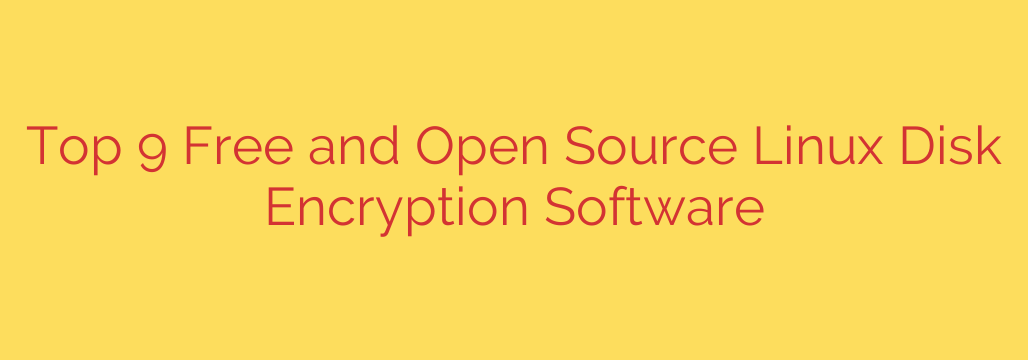
In today’s digital landscape, protecting sensitive data is paramount. Whether you’re a system administrator, a developer, or a regular user, ensuring the confidentiality of your information stored on a Linux system requires robust security measures. One of the most effective ways to achieve this is through disk encryption. Encryption transforms your data into an unreadable format, accessible only with the correct key or password. This means even if your device is lost or stolen, your files remain secure.
Fortunately, the Linux ecosystem provides a wealth of powerful and free as well as open source tools for implementing encryption. These solutions offer flexibility, strong security features, and community support, making them excellent choices for safeguarding your data without proprietary restrictions.
Several key technologies underpin Linux disk encryption. One fundamental layer is dm-crypt, a kernel-level mechanism that provides transparent encryption for block devices. Building upon this, the Linux Unified Key Setup (LUKS) standard is widely adopted. LUKS provides a standardized format for on-disk metadata, making it easier to manage encrypted volumes across different distributions and tools. Using cryptsetup, the command-line utility for LUKS, users can create, manage, and access encrypted partitions or whole disks with relative ease. This setup is often considered the gold standard for full disk encryption on Linux.
Beyond full disk encryption, other methods cater to different needs. For securing specific directories, such as a user’s home folder, eCryptfs offers a stacked filesystem encryption solution. It encrypts files directly on the filesystem layer, providing flexibility for encrypting only certain parts of the system.
Another highly versatile option is VeraCrypt. While it can be used for full disk encryption, it is particularly popular for creating encrypted file containers or encrypting non-system partitions. VeraCrypt is also cross-platform, allowing access to encrypted volumes from Windows, macOS, and BSD alongside Linux, which is incredibly useful for data portability and sharing securely. Its features include support for various encryption algorithms and plausible deniability.
Other tools exist that provide alternative or complementary encryption capabilities, demonstrating the depth of the open-source community’s commitment to security. Choosing the right tool depends on your specific requirements, whether you need full system protection, encrypted containers, or individual directory encryption. Implementing disk encryption is a crucial step in any comprehensive security strategy, providing peace of mind that your sensitive information is protected against unauthorized access. Embracing these free and open-source solutions empowers users to maintain control over their data security without compromise.
Source: https://www.linuxlinks.com/diskencryption/








